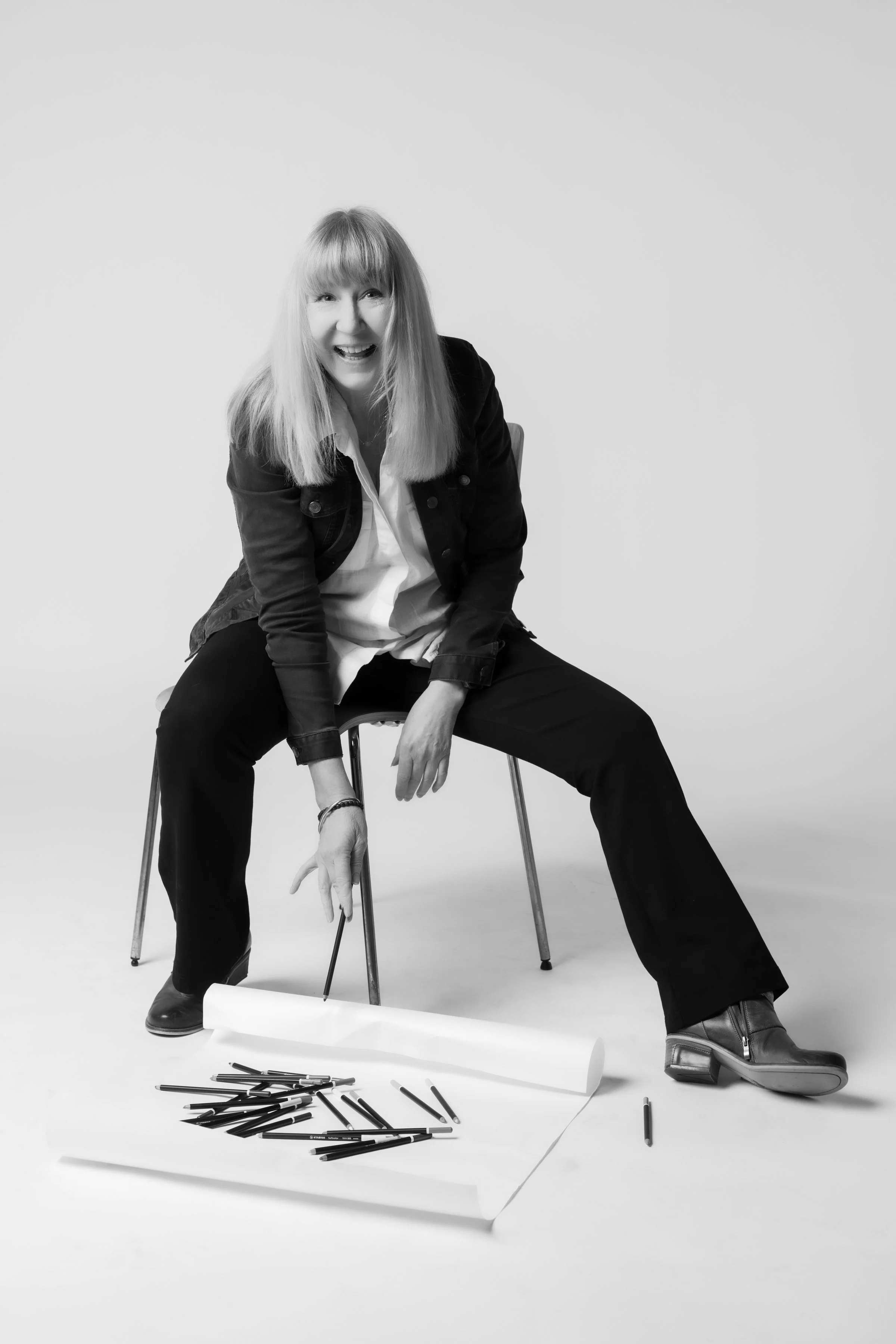
Michèle Dodd - Artist, Writer
Q: What was it like being a middle child?
A: You don’t really notice it until you see other middle children and realise, yes, that’s me. I just fit the category perfectly.
Q: Where did your interest in art come from?
A: I could always draw. From the time I was small at school, I just had that ability. I thought everyone else could draw, so when people asked me to do it, I didn’t realise it was anything special.
Q: How would you describe your art?
A: Semi-realistic, sometimes quirky, often quite illustrative. I love strong, vivid colours with softer subjects—animals, birds, nature. Illustration has always been my thing, though I also write.
Q: And where did writing come in?
A: I’ve always loved writing, though I suffer from imposter syndrome and still worry about being “good enough.” But writing, like drawing, makes me feel good—it’s another creative outlet.
Q: When you were leaving school, what career did you imagine?
A: I actually wanted to be a vet. I loved art, but I couldn’t see a future in it at the time. I went into art at RMIT, but part of me sometimes wishes I’d pursued veterinary science.
Q: Do you consider that a regret?
A: Probably. Art has been fulfilling at times but also devastating, and it’s never made me rich. Sometimes I wish I’d had a more structured career and done art on the side.
Q: Tell me about the Black Saturday fires.
A: Our house burnt down and I lost everything—my folio, manuscripts, my identity. For a while I didn’t think I could draw again. It took me 10 years to recover. My relationship broke down, and I was looking after the kids alone. But I’ve come through it.
Q: Was creating the commemorative gum leaf artwork cathartic?
A: Yes, it was. Writing, though, became even more important for my recovery. I wrote about the fires, and also about the contrast of moving from the bush to suburbia—it was very healing.
Q: So where are you now? More a writer or an illustrator?
A: Both. I’ve just finished a bird series that nearly got taken up by Allen & Unwin, and I’ll keep pursuing that with other publishers. I’ve also completed two novels—one middle grade, one adult—that I’m pitching soon.
Q: How do you deal with rejection?
A: I’m used to it. I almost expect rejection now, but when you get good feedback it lifts you. Losing everything in the fires gave me perspective—rejection doesn’t faze me too much anymore.